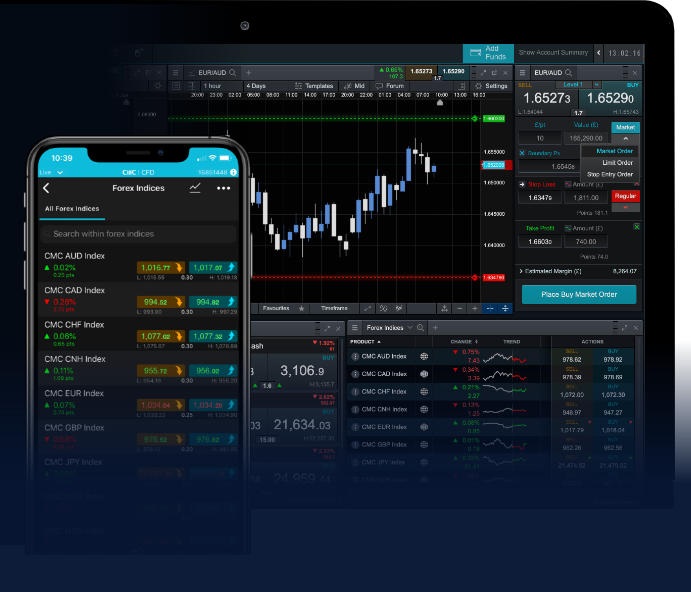
Understanding how to calculate taxes on your Forex trading activities is essential for every trader looking to manage their finances effectively. Whether you are a beginner or a seasoned trader, one critical aspect that cannot be overlooked is tax compliance. In this article, we will explore the importance of using a Forex trading tax calculator and how you can simplify the calculation process. For additional resources, consider checking out forex trading tax calculator Nigerian Trading Platforms that can aid in your trading journey.
The Importance of Forex Trading Tax Compliance
Forex trading, like any other form of investment, brings not only profits but also tax obligations that traders need to be aware of. The taxation of Forex trading profits can vary by country and will impact how much of your earnings you get to keep. Understanding your tax obligations can help you avoid pitfalls, such as penalties or audits, which can arise from underreporting your gains.
Understanding Tax Obligations in Forex Trading
In basic terms, if you make profits from your trading activities, you are liable to pay taxes on those earnings. Different countries have varied laws regarding capital gains and income from trading. For example, in the United States, profits from Forex trading are typically treated as capital gains, and depending on your tax bracket and how long you held the positions, the tax rate may differ. In contrast, other countries may treat these profits as regular income, subjecting them to standard income tax rates.
What is a Forex Trading Tax Calculator?
A Forex trading tax calculator is a tool that allows traders to compute their tax obligations based on their trading activities. By inputting relevant data such as profit and loss figures, trading frequency, and other pertinent details, traders can get a clear view of their potential tax liability.

Features of an Effective Forex Trading Tax Calculator
- Input Flexibility: The best calculators allow you to input various trading scenarios to understand how they may impact your taxes.
- Country-Specific Calculations: A good tax calculator should cater to the specific tax laws and regulations of your country.
- Reporting Capabilities: Many calculators can generate reports or summaries that can be beneficial during tax filing.
Step-by-Step Guide to Using a Forex Trading Tax Calculator
- Gather Necessary Information: Collect all your trading records, including realized gains and losses, transaction dates, and holding periods.
- Choose a Reputable Forex Tax Calculator: Look for a reliable online tool that meets your country’s tax regulations.
- Input Your Data: Enter the relevant figures into the calculator. This may include the total amount of trades, profits, and losses you’ve incurred.
- Review the Results: Once you hit calculate, review the output carefully to ensure accuracy. Most calculators will give you a breakdown of your tax obligations.
- Make Payroll Adjustments: If necessary, adjust your payroll or estimated tax payments based on the results from the calculator.
Common Tax Misconceptions in Forex Trading
Several myths exist around the taxation of Forex trading that traders need to be wary of. Some common misconceptions include:
- All Gains are Taxed as Capital Gains: Depending on your country and how trades are categorized, some gains may be taxed at ordinary income rates.
- Losses Can’t Be Carried Forward: Many jurisdictions allow traders to offset gains with losses, providing flexibility in managing tax liabilities.
- Day Trading is Always Taxed Favorably: Temporary gains can still be subjected to higher tax rates depending on the holding period.
Tax Documentation and Record Keeping

Maintaining accurate records of all your Forex transactions is not just best practice; it’s crucial for tax purposes. Documenting every trade, including timestamps, amounts, and results, is essential for providing accurate information to tax authorities. Many traders find it beneficial to keep digital records or use trading platforms with integrated reporting features that simplify this process.
Best Practices for Record Keeping
- Keep all trading confirmations and statements.
- Use a spreadsheet or a specialized app for log management.
- Regularly back up your records for safety.
Consider Professional Help for Complex Situations
If your trading activity is extensive or complex, or if your situation involves multiple tax jurisdictions, it may be worth considering the assistance of a tax professional who specializes in Forex trading. They can offer insights and optimal strategies tailored to your individual situation, ensuring compliance and potentially saving you money.
Conclusion
Staying on top of your tax obligations as a Forex trader is a vital part of managing your finances effectively. By utilizing tools like a Forex trading tax calculator, keeping detailed records, and understanding your local tax laws, you can navigate the complexities of trading taxes with greater confidence. Remember that proactive management of your tax affairs will not only help avoid surprises come tax season but can also ensure that you’re making informed decisions that align with your trading strategies.
Utilize available resources, keep educated on tax matters, and don’t hesitate to seek professional advice when necessary. By doing so, you can focus on what you do best—trading in the Forex market.


